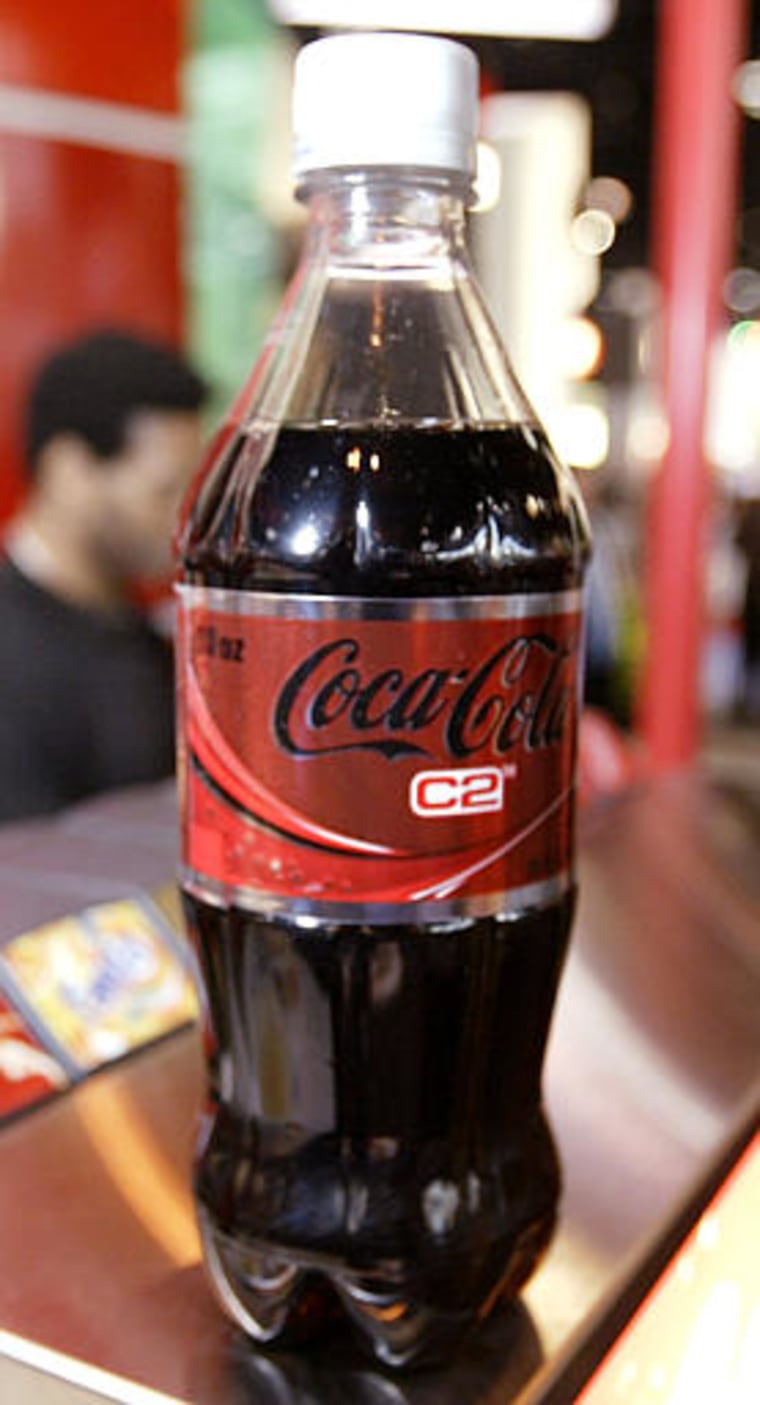Coke and Pepsi, trying to put more fizz into their soda sales, are about to launch new brands that taste like their flagship drinks but contain half the sugar, carbs and calories.
Coke's C2 and Pepsi's Edge are to hit the market nationally this summer. In advance, the companies offered tastes to supermarket executives, restaurant owners and other potential retail distributors at the Food Marketing Institute's annual trade show in Chicago.
The new sodas are targeted at people who don't like the calories in regular colas but are dissatisfied with diet versions.
These midcalorie sodas may work, said Donna Albertson, who co-owns The Good House, a steak and seafood restaurant, with her husband, Buck, in Ragersville, Ohio. Sipping Pepsi Edge from a paper cup, she said the soda tasted as good as regular and did not have the aftertaste of diet.
It could be a hit with people concerned about their weight, especially women, she said: "It's going to be a gal thing. Gals are always watching their weight."
The sodas are designed to appeal to "people who would like less calories but don't want to compromise on taste," Coca-Cola spokesman Mart Martin said in a telephone interview from the company's headquarters in Atlanta.
Martin dismissed the notion that Coca-Cola C2 might become another New Coke, a new taste the company introduced in 1985 as a replacement for its regular soda, only to see it rejected by consumers. Coke returned to its traditional drink less than three months later, marketing it as Classic Coke.
"This is a completely different proposition, an addition to the portfolio, not a replacement," Martin said.
Pepsi estimates a potential buyers' pool of more than 60 million. It wants to keep them loyal to sodas so they don't drift into competing beverages such as teas and juices, said David DeCecco, a spokesman at Pepsi's headquarters in Purchase, N.Y.
The new drinks contain the standard high-fructose corn syrup that sweetens regular soda but in smaller amounts. The corn syrup is supplemented with Splenda, a no-calorie, no-carbohydrate sweetener made from sugar.
The result is a soda with fewer calories than regular but more than no-cal. For instance, Pepsi says a 12-ounce can of Edge has 20 grams each of sugar and carbohydrates, and 70 calories, compared with regular's 41 grams each of sugar and carbohydrates, and 150 calories.
Although the products are new, the midcalorie soda category is not. Coke sells a midcalorie drink in Norway, Martin said. Pepsi had tried two other products in the United States, the latest in the mid-1990s, and had to withdraw both, DeCecco said.
Technology opened the way for Pepsi to try again, DeCecco said. Splenda was not available for the earlier brands, and the sugar-based sweetener is a key ingredient toward creating a lower-calorie soda that tastes like regular, he said.
Another big difference is a shift in consumer preferences, said John Sicher, editor and publisher of the trade publication Beverage Digest, in Bedford Hills, N.Y. Americans are paying more attention to their diets, especially to counting carbs and calories.
"There's a whole different consumer awareness now that makes this a timely product," Sicher said.
That new awareness shows up in sales figures, Sicher said. The growth in beverages has been in sports drinks and bottled water. Even in sodas, sugared soft drinks have been losing market share, slipping from 74.1 percent in 2002 to 72.6 percent in 2003, while diet drinks have been gaining, he said.
The companies have a lot at stake in keeping consumers happy. Even though Coke and Pepsi make other products that could satisfy thirst, soft drinks are their mainstays, Sicher said.
